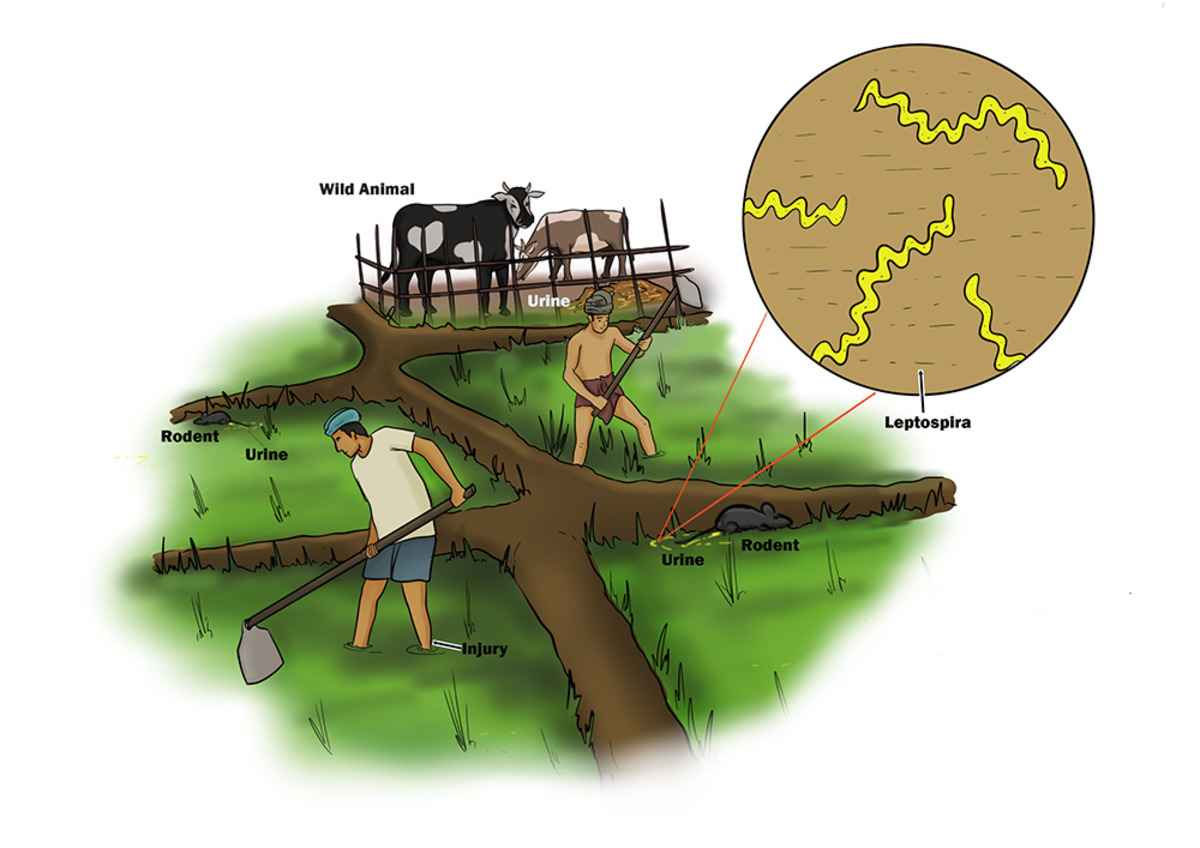Ernakulam District is witnessing a troubling surge in Leptospirosis disease, a bacterial infection that spreads rapidly in damp, flood-prone environments. Over the last three weeks alone, five lives have been lost, and more than 65 suspected and confirmed cases have emerged. With the monsoon rains intensifying, health officials are urging the public to stay alert and adopt strict preventive measures to curb the spread of this potentially life-threatening illness.
What is Leptospirosis Disease?
Leptospirosis is a zoonotic disease caused by Leptospira bacteria. Humans typically become infected through exposure to water, soil, or food contaminated with the urine of infected animals. The infection is more prevalent in tropical and subtropical areas with high rainfall, especially during and after flooding.
Symptoms: From Mild to Severe
The disease usually progresses in two phases:
- Leptospiremic Phase: Early signs appear within 2 to 14 days of exposure and mimic flu symptoms—fever, headache, chills, and muscle aches.
- Immune Phase: In more severe cases, symptoms worsen and can include jaundice, kidney failure, internal bleeding, or even Weil’s disease, a potentially fatal complication.
How It Spreads
Transmission mainly occurs through contact with urine from infected animals such as rodents, dogs, and cattle. The bacteria enter the body through cuts, abrasions, or mucous membranes, especially when exposed to contaminated water or mud. Outbreaks are common after heavy rains and floods, when water sources become widely polluted.
Who’s at Risk?
- People living in tropical or flood-prone areas
- Farmers, field workers, and others in regular contact with soil and water
- Individuals involved in outdoor activities like trekking, swimming, or fishing
Preventive Tips
Health authorities recommend the following safety measures:
- Avoid stagnant or muddy water, especially with open cuts or wounds
- Wear rubber boots and gloves while working in wet or contaminated areas
- Seek medical attention immediately if symptoms appear after potential exposure
Global Impact
Leptospirosis is not confined to India. Globally, it affects over a million people every year, causing around 60,000 deaths. The disease remains a significant public health issue in regions such as Oceania, the Caribbean, Southeast Asia, and parts of Africa.



